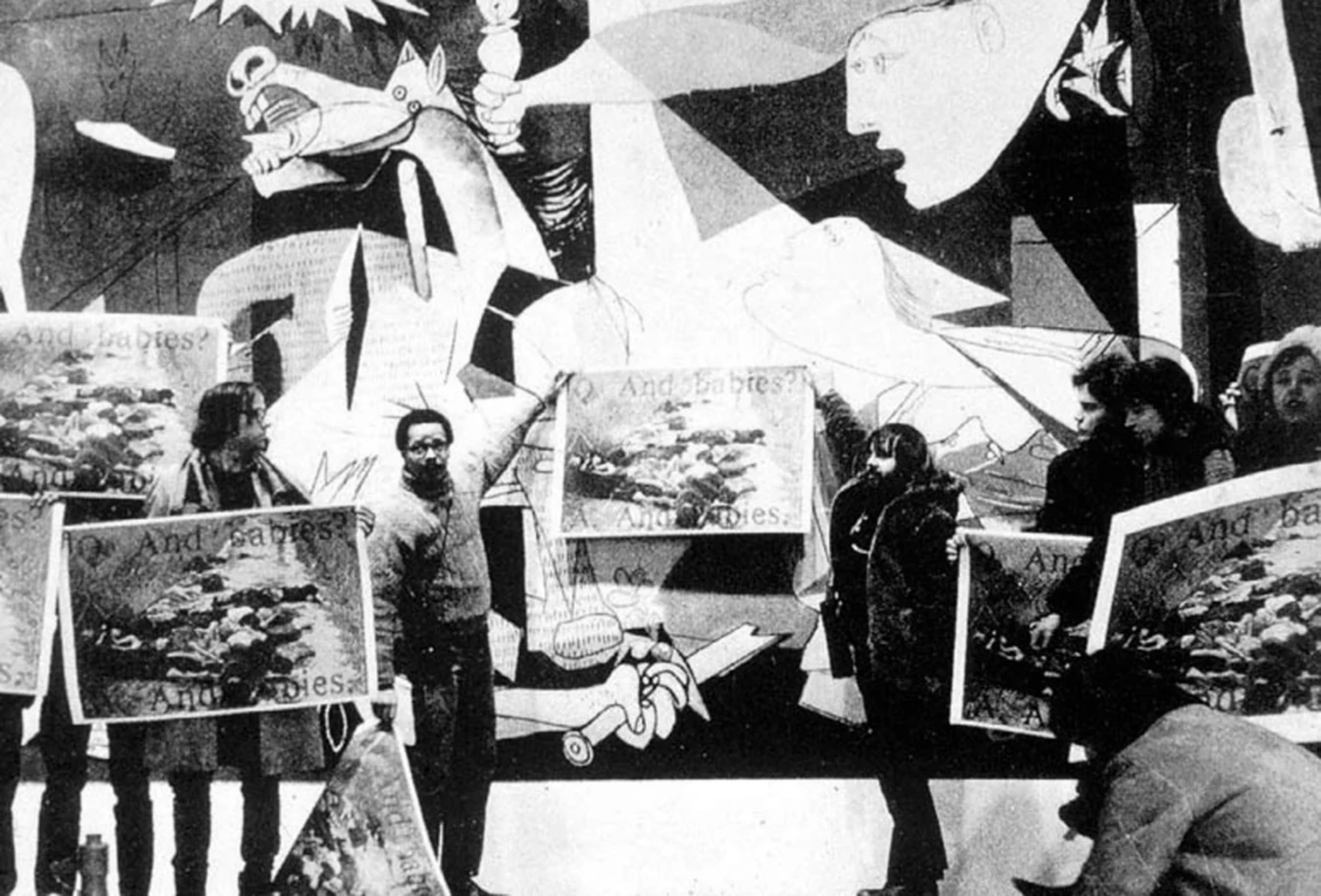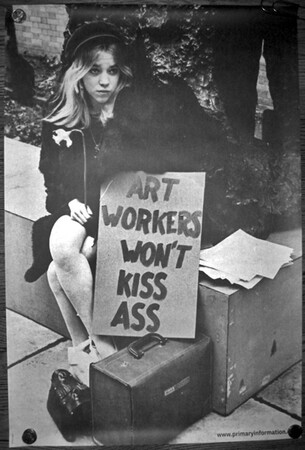Samtale

Art is for everybody but only the elite knows it
Georgia Sagri, Massimiliano Mollona and Dora García will hold an informal conversation among themselves and with the public, sharing their experience in relation to the subjects discussed in the thematic course. Everyone is welcome.

Our common course titled "Art is for everybody but only the elite knows it" explores the intersection of artistic practices, collective action, and socio-political transformation, drawing on historical and contemporary examples. The central question is access to art: What do we mean when we say that art is for everyone? Can everyone truly access art? What does it mean to own an artwork, and is ownership still reserved for the elite? We will reflect on the tension between art for the many and art for the few, and ask: As art producers, who do we have in mind when we make art? As producers and consumers, who benefits from art? Who decides and contextualizes the art we see? How can anarcho-autonomous and anarcho-feminist practices expand art as a commons?
Each one of the three professors, Sagri, Mollona and KHiO hosting professor Dora García, will approach these questions from the point of view of their own experience and areas of expertise. During the course, we will be accompanied by other artists, authors, organizers and scholars contributing to the dialogue.
Georgia Sagri holds an BFA from Athens School of Fine Arts, Athens and an MFA from Columbia University, New York. At the center of her practice lies the exploration of performance as an ever-evolving field within social and visual life. In addition to performance pieces, a great part of her artistic output comprises sculpture, video and digital media, installation, writing and drawing. Most of her work is influenced from her on-going engagement in political movements and struggles, on issues of autonomy, empowerment and self-organization. From 1997–2001 she was a member of Void Network, a cultural, political and philosophical collective operating in Athens. In 2011 she was one of the main organisers of the Occupy Wall Street movement in New York. She is the professor of Performance in the School of Fine Arts, in Athens. Her book Stage of Recovery was published by Divided Publishing in May 2021.
Massimiliano (Mao) Mollona is a writer, filmmaker, and anthropologist. He is an associate professor teaching political and economic anthropology and anthropology of art at University of Bologna. He has a multidisciplinary background in economics and anthropology and his work focuses on the relationship between art and political economy. He has conducted extensive fieldwork in Brazil, Italy, Norway, and the United Kingdom, mainly in economic and artistic institutions with a specific focus on work, class, and post-capitalist politics, and uses a methodology that combines pedagogy, artistic prefiguration, and activism. He is a member of the collective freethought and was co-founder of the Institute of Radical Imagination (IRI), which is a collective of activists, artists, and curators who aim to imagine and implement post-capitalist forms of art and life. Mollona lives and works in Bologna.
Dora García is an artist and professor at the Art Academy in KHiO, Oslo. She has developed works on the GDR political police (the film "Rooms, Conversations", 2006) on the comedian Lenny Bruce ("Just because everything is different... Lenny Bruce in Sydney”, Sydney Biennale, 2008) or on the rhizomatic associations of antipsychiatry ("Mad Marginal" book series since 2010, and "The Deviant Majority", film, 2010, part of her performance project "The Inadequate", 54th Venice Biennale). She has used classical TV formats to research Germany's most recent history ("Die Klau Mich Show", Documenta13, 2012), frequented Finnegans Wake reading groups ("The Joycean Society", 2013), and researched the crossover between performance and psychoanalysis ("The Sinthome Score", 2013, and "Segunda Vez", 2018). In 2018-24 she developed the film project "Amor Rojo", on Marxist feminist Alexandra Kollontai and the impact of her legacy on Third-World, intersectional transfeminisms.